| MY LATEST RANT I know most of us have at one time or another encountered an open mouth to where chin meets floor experience with lousy customer service personnel. Is it just me? Am I a tad bit paranoid that these types of negative experiences have become all to common? |
What Ever Happended To Becky From Missouri?
| I remember a time when you could call Sears customer service and speak to an articulate and anxious to please gentleman named Mike. cared enough about his job to insure that you the customer was happy toward the end of the call. Mike was a problem solver too. Although you may have had your doubts about Sears and their products when you initially called, he made sure that not only did you think that Sears, a staple in Americana retail was not only a great company but their customer service was even better. I remember my father "Mr. Frugal" himself, say that even if it cost more at Sears he would gladly buy it there because with Sears you couldn't go wrong. He would go on to tell me that if there ever was a problem, they would resolve it without question because the customer was always right. At one time, the customer was valued Well over time I watched that notion of the customer is always right go right out the window. I also watched the anxiousness to please in an employee's attitude dissipate over time. I watched people that were skilled in conflict resolution fade into the sunset to be replaced by people who overwhelmingly don't value your patronage. I dare to say that many don't even value their job and don't mind conveying that notion to you. How many times have we heard the phrase, "they don't pay me enough to put up with this or take this sh*t"? The drive to Atlantic City Last week was a really bad week for me. I mean really rough. Toward the end of the week all I wanted was to check into a nice hotel in Atlantic City. Relax on the beach, go for a swim, do a little shopping on the boardwalk while sampling from every eatery along the way, etc. The moment I got a chance, I called Showboat and made my reservation. The woman I spoke to was very helpful. I told her the type of accommodations I wanted and she assured me that every need and whim would be met upon my arrival. I couldn't wait to get to that room; shower and then plunge myself into those 1000 plus thread count crisp sheets and over-sized fluffy pillows. Over four hours later and finally on the road toward my weekend sanctuary, my anticipation for this overdue R&R was at an all-time high. A 75 mile drive to paradise was only around the corner. I anxiously paid close attention to the signs along the expressway. 30 miles to Atlantic City (AC)...20 miles to AC...10 miles to AC. Yes, less than ten minutes until I can feel the triple head shower sprays massaging my tired and weary muscles; the fluffy pillows, crispy sheets....yessss. Then I received the call. although I confirmed the reservation, I did not have a room at the Showboat. My near blissful demeanor was shattered. I sank into my bucket seat and was near depression as he expressed his sincere apologizes about this occurrence and bid me good luck and good evening. I beseeched him for further assistance. I asked him was there not anything he could do for a valued customer such as myself? After all, I am less than 5 minutes from your hotel. He replied no, there was nothing he could do to resolve the situation but thanks for being a loyal customer and we hope to assist you in the future. Huh? I told him I needed assistance right now not later being that Atlantic City was booked solid due to various conventions, sports events and big name concerts. He assured me again in the most polite manner that there was nothing that could be done. I asked if he could let me speak to his supervisor, hoping that he/she could possibly resolve this issue. He told me there wasn't anyone that could resolve the issue since his department only handles hotel reservations. He again bid me farewell and apologized. I asked him again to get someone on the phone who could possibly help me since he was not able to do so. He again stated that he was the supervisor and there was nothing he could do for me. Now my politeness began to wear off. I asked him what kind of hotel operation waits over hours later when I'm less than 5 minutes away from the hotel to tell me I don't have a room? I could see if they called me back within an hour even an hour and a half but over four hours...really? That's when my fine feathered friend began to laugh. Why did he do that? Entertainment (pictured above) and include the time stamp of this call. I asked him to tell me his name and he refused. I told him that someone will be able to figure it out from the time stamp, then I ended the call. I went to the Showboat anyway When I arrived, I was greeted by Evan at the front desk. I explained my situation and he told me that reservations had booked the overflow of guests at the Trump Taj Mahal. He mentioned that the Taj would honor the Showboat rate. I told Evan that the representative that I spoke to told me that there was nothing he could do for me. Evan re-affirmed that was the course of action and they would never leave a guess stranded. Evan pulled up my reservation and saw that was the course of action for everyone but ME. He was shocked to see that accommodations weren't made for me and said that he would have to get a manager involved to approve the reservation at the Taj. A few short minutes later he returned to the front desk with my Taj reservation in hand and apologized for the situation and even suggested that I file a complaint because they can pull a call's audio. Earlier in the day Remember when I made my reservation? I neglected to tell you that I could only get one night at the Showboat. I wanted to stay for three days so I had to make another reservation for the remaining two days. I called up Choice reservations to check availability at my two favorite hotels near Atlantic City. I asked her to repeat herself and speak slowly many times throughout the conversation and she was very accommodating and patient to do so. I told Sally to check the availability of my favorite locations to see if either property could meet my needs. I even gave her the addresses of the properties. She pulled up the availability and told me the rate. I agreed and confirmed the non-refundable reservation with my credit card. Sally with her broken English and heavy accent made me happy or so I thought. Let's fast-forward to checkout at the Taj. The Taj as usual was a wonderful experience. Michelle at the front desk was so pleasant to deal with. She went above and beyond the norm and gave me a very luxurious room with ocean view. Truly a pleasant end to a most stressful day. Upon checkout, I thought that fiasco with the Showboat was behind me. I decided to go shopping at the outlets before I checked into my hotel which was located right outside Atlantic City. After shopping, I drove directly to my hotel where I was warmly greeted by the staff who have grown accustomed to my patronage over the years. Fred happily looked up my reservation and for some reason did not see it on his system. He said maybe they booked you at another location. I stated they couldn't have because I specially asked for this location and guaranteed it with my Visa. I told him no matter just book my usual accommodations. He said he couldn't because he was booked solid until next week. Dammit! I left hoping that perhaps Sally was confused and booked me into my second favorite hotel a little further down the road. So I drove over there. of a guy in a yellow shirt with a green bow tie. He checked my confirmation number and he too couldn't pull it up in his system. Now I'm thinking what the heck was going on here? Where could Sally have made this reservation? I went to the business center in the hotel and logged into my Choice account to see exactly where this reservation was. Ahhhhhhhhhhhhhh!!!! Sally not only screwed up the reservation by not booking me into my preferred property. She booked me into a dump on the other side of ish kibble and charged my Visa on top of it all. | I couldn't believe it. Incompetence all over again I had a meltdown. Fortunately Dan had just two rooms left and I was able to secure the accommodations that I needed at a cheaper rate just because of the inconvenience of it all. The face and faces of customer service have indeed changed Now I am not some xenophobe nor do I tolerate insensitive behavior to others. I do feel that at the expense of the consumer, companies have eliminated in-house customer relations with cheaper foreign call centers. I wonder if senior management really examines the data to see if these measures are truly cost effective or value-added. Where there once were Americans who spoke English behind the registers at various stores there are now less compensated even harder working foreigners with heavy accents. I believe everyone should get a fare shake and have equal opportunities to aspire. However, I blame management's penny pinching on the state of consumer relations and the direction in which it is headed. Quantity of call volumes don't equate to quality resolutions If someone can't speak or understand the language well enough or be understood by customers, then that person should not have a primary role interacting with customers. Likewise, if an American born and bred right here can't speak articulately or possesses an unprofessional and unpleasant demeanor, they too should not be interacting with customers. Whatever Sally's real name was doesn't matter. What should matter especially to Choice Hotels is that I will never use their reservation desk again. This unfortunately, was not the first time I was disappointed by them. In my book, there is no third strike. You're just out. From this point forward, I will contact the hotel properties directly. I may pay a higher rate but I most likely will have a more qualitative result. If it weren't for the fact that I enjoyed the consistent level of service I received at my favorite hotels, I would definitely never patronize Choice Hotels again. Sally wasn't an isolated incident. All week long I was consistently disappointed and inconvenienced by incompetent or incapable customer service personnel. But nothing was worse than the experience I had with el Banco America. Bank of America SUCKS!!! I will spare you the specifics of the situation. In summary, Bank of America allowed over ten grand to be siphoned out of my account by a third party which I am currently in arbitration against. In addition to that, the bank assessed tremendous fees against my accounts. Trying to get fees and such refunded back into my account was like pulling teeth with greased fingers. I finally got the situation resolved after five months of battle. In the interim, I was shuffled around their customer service queues to only end of with a heavily accented person who had no comprehension of my issues or the language I spoke. Their only purpose was to basically log the call and update the call record to boost queue performance...not to help at all. That really disappointed me about Bank of America. I never said that! What really drives me nuts is when someone calls me a liar to my face by telling me I did or said something I didn't do or say. This tends to happen to me quite often. Many of my friends have witnessed this and actually expect it to happen at some point when they are with me. Maybe I begin to speak a foreign language or I become incoherent when asked questions by service personnel. Tonight a friend and I walked into a fast food restaurant and placed an order. My friend tells the young woman behind the register what she wanted and I added one simple item that I wanted. The woman repeated the order and she emphasized what I asked for. I said yes...a large blah blah. She rang up the total and after a short wait we were given our order. She repeated it to us. My face was sullen and my friend began to tell me to take it easy because she knows this happens to me just about EVERY SINGLE TIME!!! I go to the counter and I asked the young lady in the sweetest voice I could muster to please fix the order. She then tells me that the item I received was the item I asked for. I told her no...it wasn't. I even allowed her to save face by saying that she must not have heard me (even though she repeated it back to me). She then tells me that she did hear me and she repeated it to me and I was given what I asked for. I just kept quiet because it wasn't worth it. She then tells me what I want will be an extra dollar. I gave her a ten dollar bill and she gets this attitude like now I gotta go and make change. She gives me my change and takes the item to the rear of the store where the manager is and tells him that I wanted to exchange the item. He nods his head in approval. She then prepares the item and instead of just giving it to me and keeping her big trap shut she had to have the last word AGAIN! She said that I never asked for this item because if I had, I would have had it in the first place. This young fool may not know when to keep her mouth shut but I do. If I had said what I wanted to say, she would have probably broken down into tears, quit and never worked another day in the service industry again. That fast food chain that employs assholes won't have to worry about me patronizing them again either. I don't think I should beg people to take my money or be subjected to intolerable conditions in order to spend it. Segregation I never understood certain attitudes toward segregation. I can understand the protests against obvious oppression. The notion of separate but equal was total bullsh*t. What I don't understand are protests against consumerism. I mean if you don't value me as a human being nor do you want my patronage, I'm not about to march in front of your business and try to make you let me join your club or buy your goods and make you rich. The hell with that. I rather spend my money within my own community where I'm appreciated and help it to flourish. If you want to cater to a specific clientele that should be your prerogative. The obvious fix As we all know, sometimes companies and government agencies put certain types of people in customer relationship roles that definitely should not be there. Their purpose is to frustrate the person seeking information or resolution to a problem to a point where the person begins to think their quest is futile. Unfortunately, we as Americans tend to associate certain types of conflicts with racial stereotypes. Management shares this same negative ideology and places certain personality types in these customer relationship roles. problem and now is centered on a person who is insignificant in the entire spectrum of things. You instinctively want to get payback so you dive head first into revenge mode to get that antagonist sanctioned or even worse fired. You forgot the fact that the core reason for your complaint was the crappy service you received or lousy product you purchased. Management understands this and they love it. This is how they boost their performance numbers. Even if your rant results in some poor schmuck losing their job, there are plenty more applicants just like her/him to fill the void; and at the end of the day you further delayed resolution of your issue. To bottom line it...these results can be spread across quarterly reports. Not every business values the customer like Trader Joe's At Trader Joe's, every single person is smiling while busting their ass. Have you ever stocked grocery shelves? I haven't but you see all that heavy lifting and hustle and bustle that goes on. Looks like very hard work to me. They have to be the friendliest and most helpful employees on the planet. It doesn't matter which location or state, the up-beat environment and employee attitude are consistent. That certainly isn't the environment at Target. I witnessed this employee stocking shelves fail to value the customer. Although when asked, she would tell them where to find the product(s) but she never turned her head to give them eye contact when she spoke; nor did she stop what she was doing to show the customer where aisle 7G was. When an elderly gentlemen asked for her to show him where an item was, she refused and directed him to the pharmacist to show him. The elderly guy asked her for her name so he "could tell someone how helpful she had been". She abruptly replied with her name. That was the only time I saw her turn her head and give eye contact. The pharmacist who is always busy as heck comes from behind the counter and gets the item which was less than two feet from the employee that was stocking the shelves. The pharmacist was not happy. You should have seen his face. I'm sure he said something to her manager as he should have. The bottom-line is... Businesses really need to get a handle on their customer relations agenda and listen to how their customers view value and make changes to their relationship management strategies. WalMart listened. That's why they're the biggest corporation on the planet. Forget the fact they they don't pay their employees minimum wages in some areas or they sanction dolphin killing. Management was smart enough to listen to consumers and understand that price points were the primary concern for their customers. Every business needs an edge in a competitive marketplace why not start with customer service. Michael Dell understood that. Dell Computers makes crappy computers but their customer service is full of Mikes. |













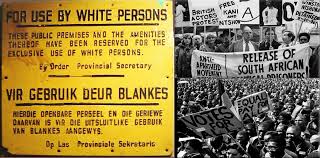


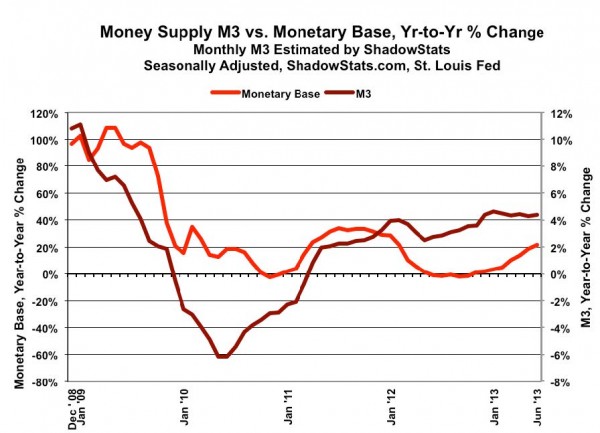
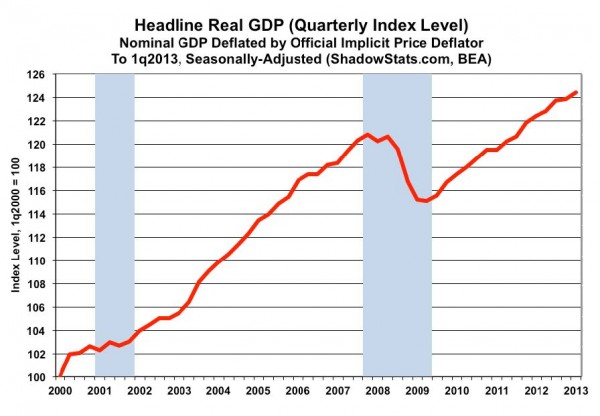
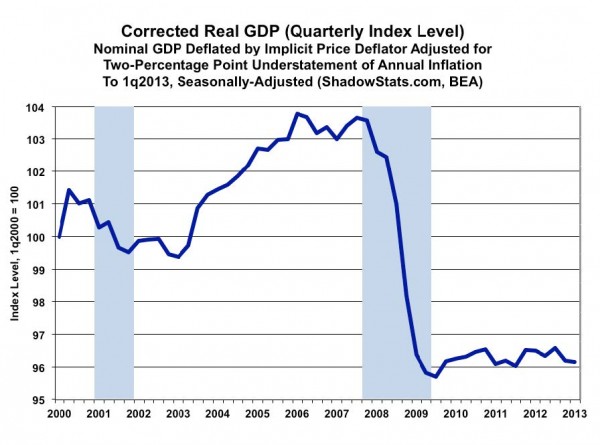
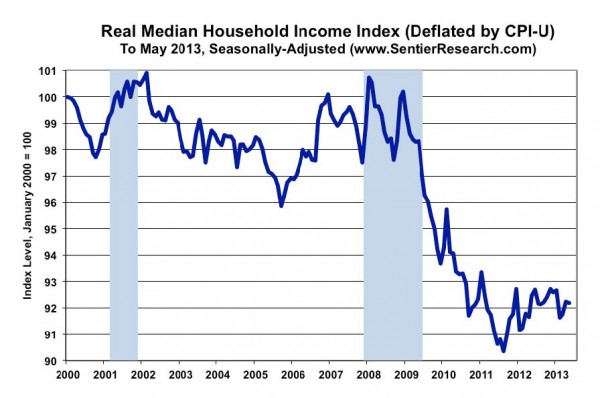


 RSS Feed
RSS Feed
